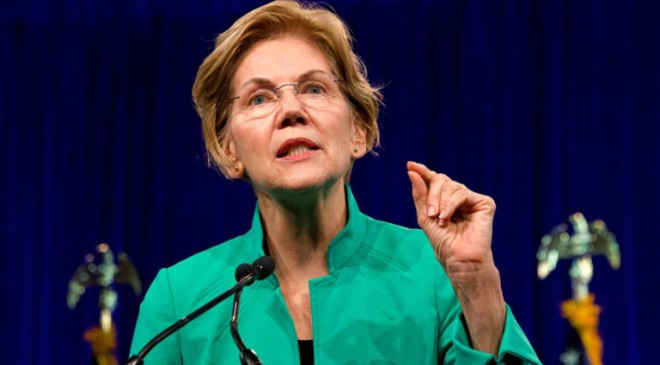Senator Elizabeth Warren (D-Mass.) believes regulators should not give in to lobbying pressure at a time when a banking crisis has resurfaced in the U.S.
Read More:-Direct deposits not showing up in some Wells Fargo customer accounts, here’s why
“Wall Street lobbyists and Republicans in Congress are pushing Federal Reserve Chair [Jerome] Powell for weak capital requirements at exactly the wrong time. Silicon Valley Bank’s (NASDAQ:SIVB) collapse underscores the need for strong rules to protect the financial system. Regulators must not buckle to pressure,” Warren tweeted.
Over the last few months, Fed Vice Chair for Supervision Michael Barr initiated a “holistic review” of capital rules put in place over the last decade and recommended lenders should be subject to higher requirements, according to a Politico report.
Also Read– Silicon Valley Bank fails in largest bank collapse since 2008 crisis
Capital Debate: As the Fed Vice Chair’s suggestions rattled the industry, some of the main trade groups that include the Bank Policy Institute, which counts SVB as a member, the Financial Services Forum and the Securities Industry and Financial Markets Association, launched a campaign to debate that raising capital requirements would be a drag on the economy, the report said.
JPMorgan Chase CFO Jeremy Barnum reportedly said at a March 1 Washington symposium held by the Bank Policy Institute that banks have two choices in response to higher capital requirements.
“We can charge higher prices or we can do less lending. Both of those choices are ultimately bad for consumers and businesses,” he said according to the report.
Also Read- Biden’s $6.8 trillion budget challenges Republicans, raises taxes on rich
During Powell’s testimony before Congress last week, Sen. Tim Scott (R-SC) said capital and its quality must be continually scrutinized. “But increased capital does not necessarily provide an increased benefit,” he said according to the report.
Benzinga’s Take: Raising capital requirements has been one of the most debated arguments in the banking industry, not just in the U.S. but across the world. And it almost always takes a crisis of a massive magnitude for regulators to consider what is necessary over what is being lobbied.
Also Read– S&P 500 barely gains as investors eye upcoming jobs data, rate hikes
For example, it was the 2008 sub-prime crisis that led to the passing of the Dodd-Frank Wall Street Reform and Consumer Protection Act that ensures lenders maintain sufficient capital to prevent systemic shocks.
Now that the ongoing banking crisis has deepened, lobbyists appear to worry that their agenda regarding capital requirements may not come to fruition, as Politico pointed out. The only way going forward, as Warren says, is for the regulators not to buckle under pressure.

























